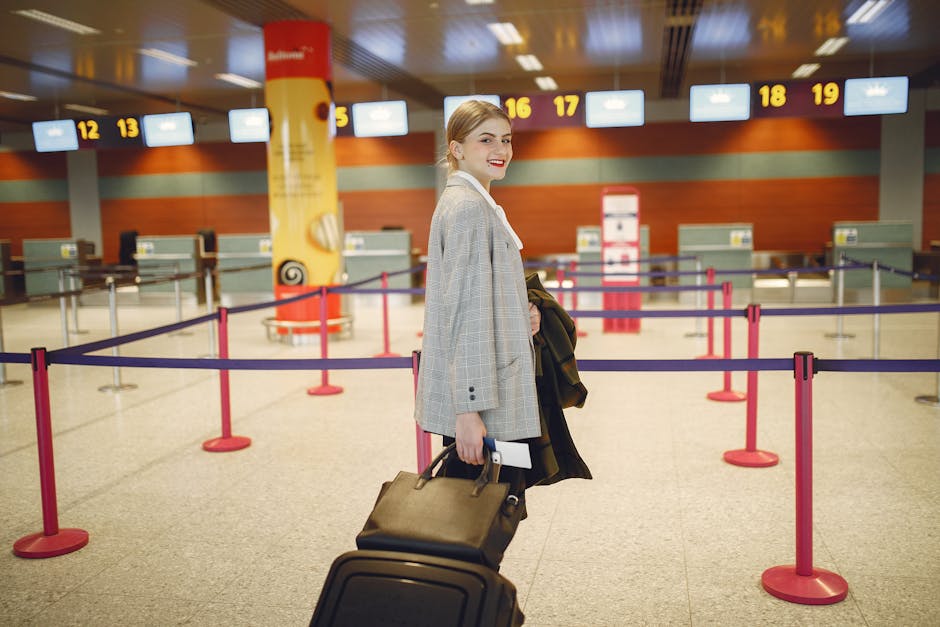Understanding Airline Baggage Fees: How to Avoid Extra Costs
Flying is exciting, but let’s be real, nothing deflates that excitement faster than unexpected baggage fees. They’re like sneaky little surprises that can quickly turn a budget-friendly trip into an expensive ordeal. The good news? With some planning and a little know-how, you can avoid most of these fees entirely.
Know the Rules of Your Airline

First things first: airlines are not all created equal when it comes to baggage policies. Some carriers, particularly low-cost airlines like Spirit Airlines or Ryanair, have notoriously strict rules about what counts as a carry-on versus checked baggage and they charge accordingly. Before you even start packing, visit your airline’s website and review their baggage policy. These policies will outline size limits, weight restrictions, and associated costs for both checked luggage and carry-ons.
For example, Delta allows one free carry-on and personal item for most tickets, while budget airlines like Frontier might charge even for overhead bin space. Knowing these details can help you pack strategically and avoid unnecessary fees.
Pack Light and Smart
The easiest way to dodge extra costs? Don’t overpack. Stick to the essentials and think carefully about what you truly need for your trip. A good rule of thumb is to pack outfits you can mix and match rather than full ensembles for each day. For instance, a pair of neutral-colored pants can go with multiple tops, cutting down on how much clothing you need to bring.
If you’re traveling with a companion, consider sharing certain items like toiletries or electronics. Why pack two hairdryers when one will do? Similarly, bulky items such as coats or boots can be worn during travel instead of packed in your suitcase, saving precious luggage space.
Consider Prepaid Baggage Options
Many airlines offer discounted rates for baggage fees if you pay ahead of time online rather than at the airport counter. This can save you anywhere from $5 to $20 per bag depending on the airline. For instance, JetBlue allows passengers to add a checked bag to their reservation in advance at a lower rate compared to paying at check-in.
Prepaying also gives you peace of mind because you won’t have to deal with last-minute surprises at the airport. Be sure to weigh your luggage at home first to ensure it meets the airline’s weight requirements, some airlines charge hefty overweight fees if your bag exceeds the limit by even a pound or two.
Take Advantage of Airline Credit Cards
If you frequently fly with a particular airline, their branded credit card might be worth looking into. Many airline credit cards offer perks like free checked bags for cardholders (and sometimes their travel companions). For example, the United Explorer Card provides one free checked bag for the cardholder and one companion on United flights, a savings of up to $140 round-trip.
Of course, it’s essential to weigh the annual fee of the credit card against how often you fly and whether the perks make sense for your travel habits. If you’re only flying once or twice a year, this might not be the best route for avoiding baggage fees.
Be Strategic with Carry-Ons
Clever packing doesn’t stop with what goes into your suitcase, it also applies to your carry-on and personal item. Most airlines allow passengers to bring one personal item (such as a backpack or tote) in addition to a carry-on bag that fits in the overhead bin. Use this allowance wisely by packing heavier or bulkier items in your personal item rather than your checked bag.
For example, instead of cramming that extra pair of shoes into your suitcase and risking an overweight fee, tuck them into your backpack or tote bag instead. Just ensure your personal item complies with size restrictions; otherwise, it could end up costing you more than if you'd checked another bag in the first place.
Avoid Overweight Fees
No one wants to be that person frantically repacking bags at the check-in counter to avoid overweight charges. To save yourself the hassle (and embarrassment), invest in a portable luggage scale. These handy gadgets are small enough to toss into your bag and will let you double-check your luggage weight before heading out the door.
For reference, most airlines have a 50-pound limit for checked bags on domestic flights and slightly lower limits on international routes. If your suitcase is teetering close to that number, redistribute items between bags or shift some into your carry-on until you're safely under the limit.
Look Out for Free Perks
Some tickets come with complimentary baggage perks baked into their price, especially premium economy or business class fares. Even if those tickets are out of reach financially, certain membership programs like frequent flyer clubs may grant occasional baggage fee waivers as part of their benefits package.
Additionally, specific groups such as military personnel may qualify for free checked bags on many airlines regardless of ticket type. Always check eligibility criteria beforehand so you don’t leave money-saving opportunities on the table.
Special Cases: Sports Equipment and Musical Instruments
If you're traveling with something unconventional (like skis, golf clubs, or a musical instrument) double-check how these items are categorized by your airline. Some carriers treat these as standard checked luggage provided they meet size limits; others impose special handling fees that can run high.
For instance, American Airlines allows small musical instruments as carry-ons provided they fit in an overhead bin or under the seat in front of you, but larger instruments may require an extra seat purchase or need checking as oversized luggage. Knowing these rules ahead of time helps avoid unpleasant surprises at check-in.
Baggage fees don’t have to derail your travel budget if you're proactive about planning around them. Travel should be about creating memories, not stressing over how much it’ll cost just to bring along your belongings!
This article was generated by AI